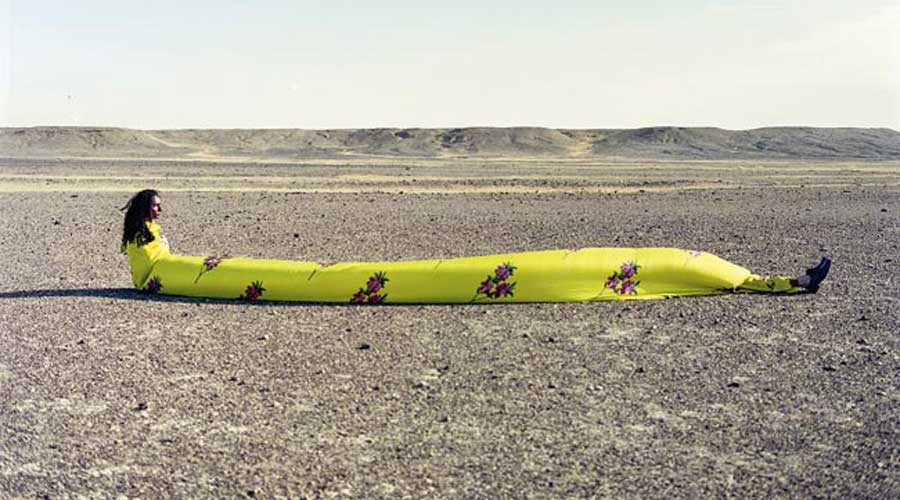Bending norms. Challenging stereotypes. Smashing barriers. On the eve of Independence Day, The Telegraph chatted with a bunch of creative iconoclasts who have carved out their own definitions of freedom.
We live in a system of rules, whether legal, moral, cultural, internal or otherwise. Imagine if we can think differently from these boundaries, question them and not be defined by them? To not get stuck in the system… this is what freedom means to me. I believe we need to always strive to be better, I don’t want a stagnant life.
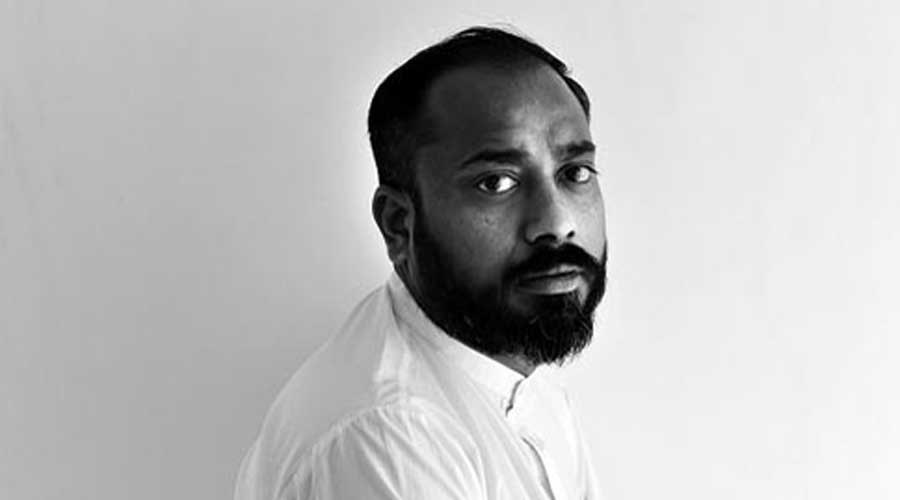
I consider all our work within this framework of freedom: we constantly question notions of traditional, modernity, correctness and value. Our recent campaign ‘Other’ was controversially received, and I recognise it is because of set notions of what Raw Mango is supposed to be. I always want to be free from those
— Sanjay Garg, textile designer
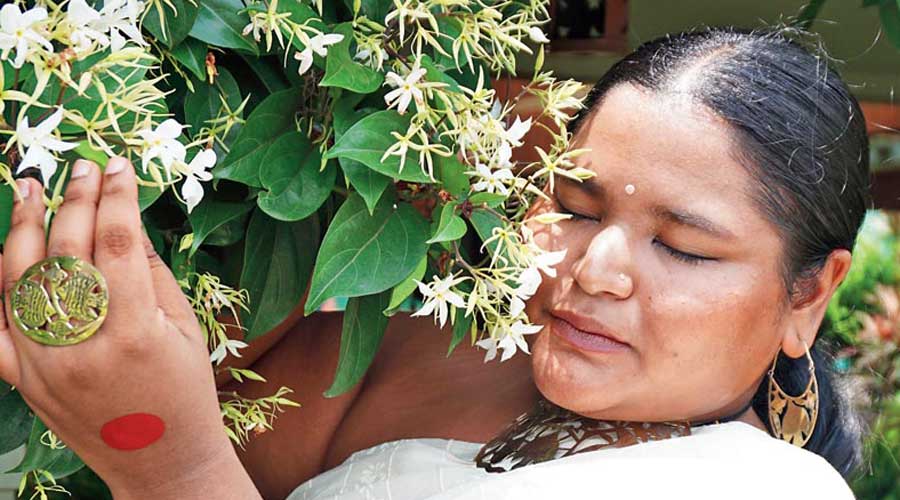
Freedom has a different definition for everyone. It changes with time and the different stages of life. When I look back, I wanted the freedom to do what I am doing today. Now I want to have the freedom to express myself without having to put myself at risk. Be free from the shackles of society. While freedom to me is liberation, it comes in different fragments. There is always a price to pay when being brutally honest. To be honest to yourself or the world, there is always a consequence when it is put out into the universe. We live in a dystopian world and to have courage to live through that without giving in is the best form of liberation to exist today.
My creative process consists of being open to learning, being inspired and incorporating my thoughts and ideas to deliver what I want to express. I do not have the freedom to express a lot of my ideas because it might put me at risk of offending a number of people who might not take my message in a positive way. Freedom to me would mean to not have to explain myself for every little thing that I put out in public, it is already filtered through multiple layers. I would want to be accepted for who I am and what I have to offer without having to constantly apologise. When working, I start off with an open mind and then start censoring out parts of what I want to express to be politically correct. I am not always as unapologetic as I come off to be, lately quite the opposite. True freedom for me would be not having to hold back my thoughts and emotions, to express myself in every way possible
— Sobia Ameen, baker, model and content creator
Picture: Tumpa Chisim;
cover picture: Tumpa Chisim
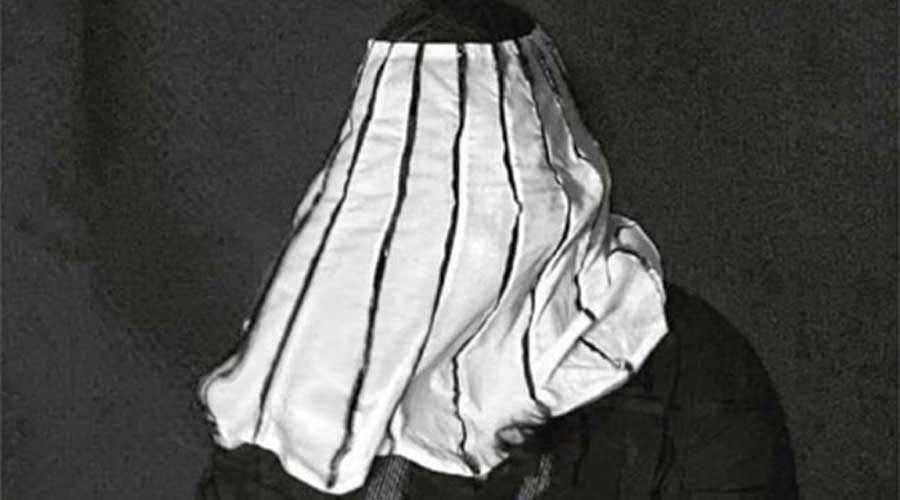
Kallol Datta portrait. Picture: Navonil Das Parak Sarungbam
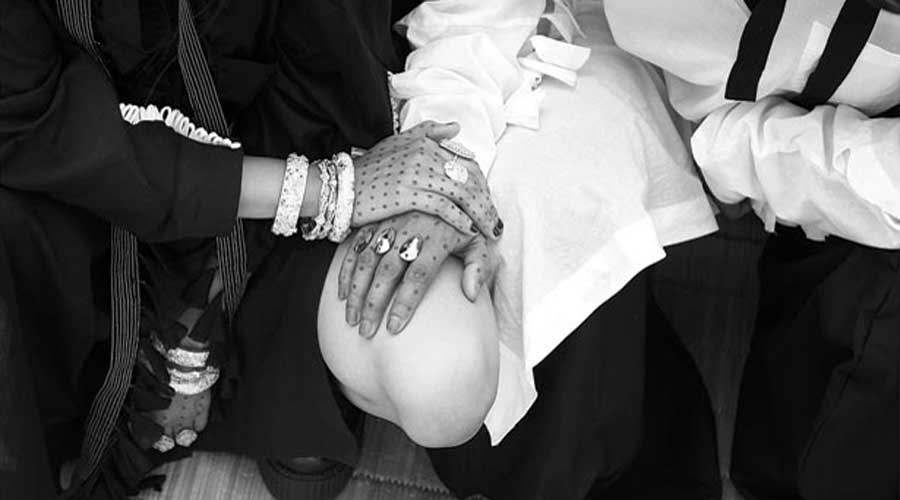
Object 4 & 5, Volume 2, 2019.
Conditional. That’s what having a sense of freedom is. We aren’t truly free, and I am not talking from a spiritual angle. Nor am I referencing the pandemic and how everyone’s lives have been irrevocably altered. Equality in rights — the right to protest, freedom of speech without oppression, accessing economic activities etc. can somehow lend to our sense of ‘freedom’ only when affirmative action, equity is introduced.
This dissonance of freedom and being truly free is part of what I attempt to address through my design interventions. Not acknowledging gender, propping notions of cultural diversity against cultural sustainability, assimilation and segregation against notions of nonconformity are what my work engages in —Kallol Datta, artist
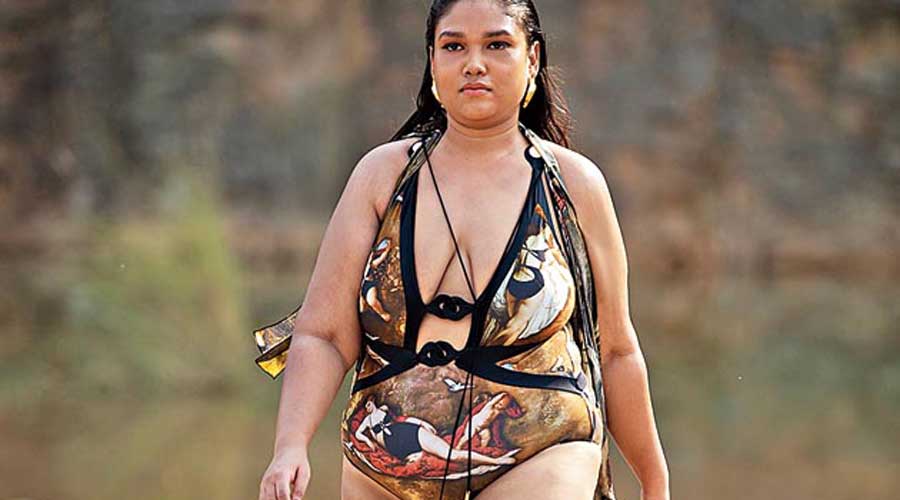
Dame Infiloop Malliot with Dame Frilled Paneyo from Wilding 20s by Shivan & Narresh
Freedom to us is synonymous with setting yourself free from social stigmas of “fitting in”. Over generations, we as humans have consciously or subconsciously been slaves to our own criticism and self judgements, which make us mirror thoughts that are then considered acceptable in society.
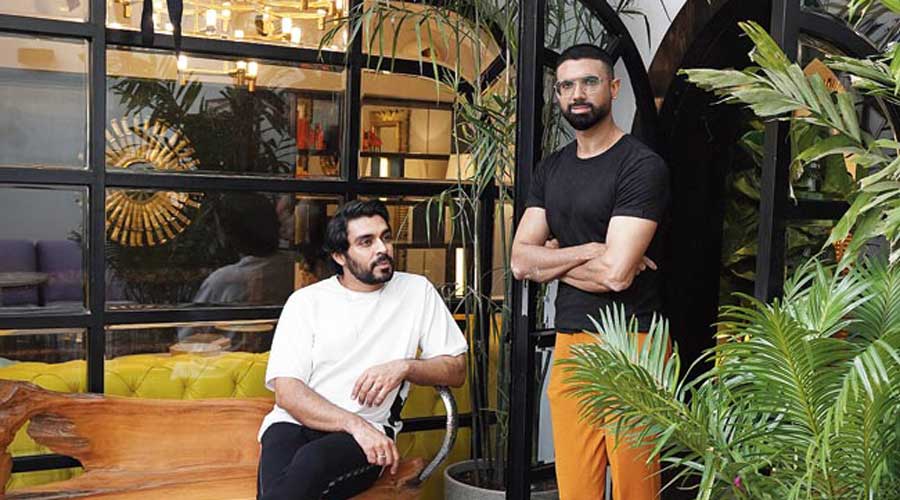
Body positivity has been one of the biggest struggles we as a brand passionately stand for and support through our creative language. Beauty is a state of mind and should not be restricted to any traditional stereotype. When you holistically feel good about yourself and embrace who you are, you exude a sense of confidence, self-acceptance, and openness that makes one beautiful. With the new role we as designers play today, one that is more of a curator than creator, the need to work collectively is even more imperative towards building a present, which has equal possibilities for everyone to coexist in the democratic language of inclusivity and self-love
— Shivan Bhatiya (left), head designer, Shivan & Narresh & Narresh Kukreja, creative director, Shivan & Narresh
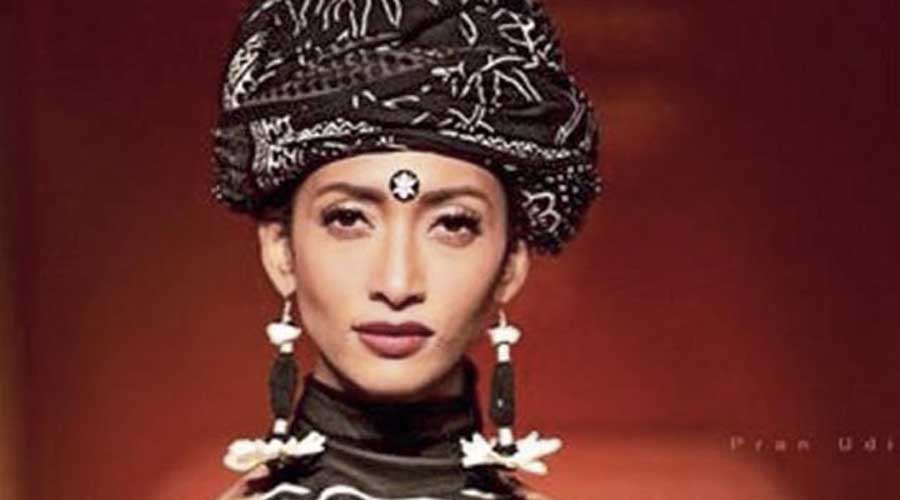
Lakshmi Rana in Bibi Russell
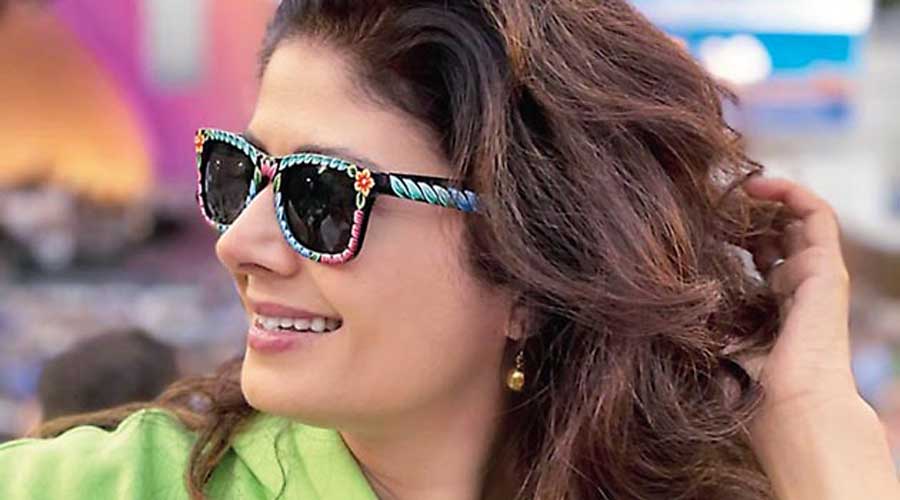
Pooja Batra cuts a stylish frame in Bibi Russell’s signature rickshaw art glasses
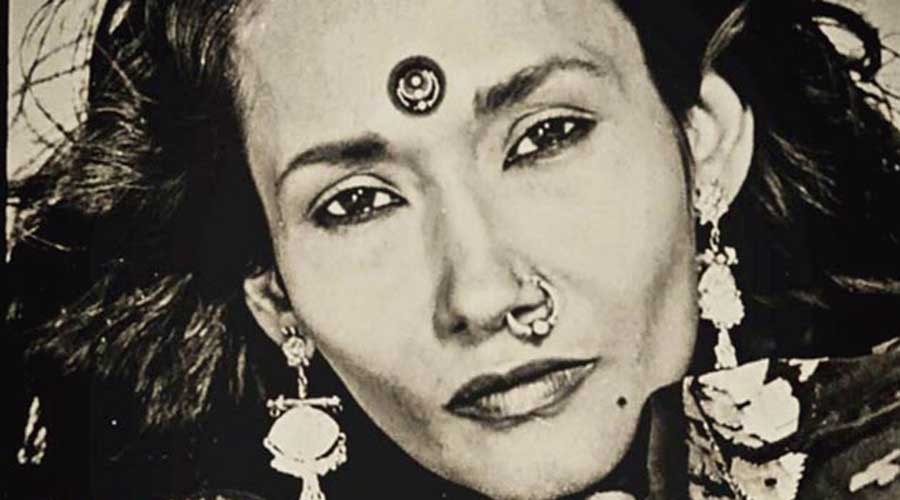
Freedom is very important for anyone I think, especially for a creative person because you know what the guideline is but you have to have freedom too. The guideline is also important for that focus in what you want to do, but you need that freedom.... I call khadi the fabric of the future, but it is (also) called the fabric of freedom because you get financial empowerment and empowerment for development and sustainability that gives you freedom. When I do something, I know how much resources I have, but for my creativity I need freedom. Freedom of space, thinking, concentrating....
— Bibi Russell, iconic Bangladeshi designer who launched Fashion For Development in 1996, “built on the idea that fashion could facilitate social, economic and sustainable development”
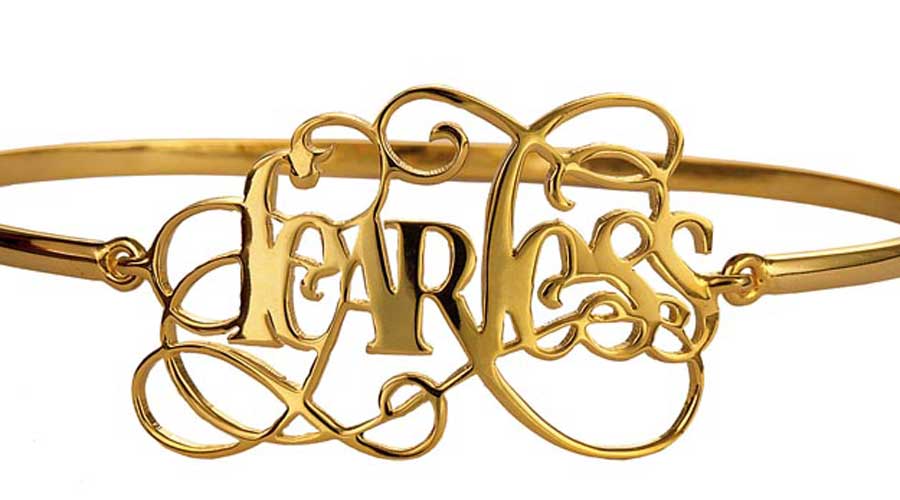
The Fearless bangle, in sterling silver with gold plating
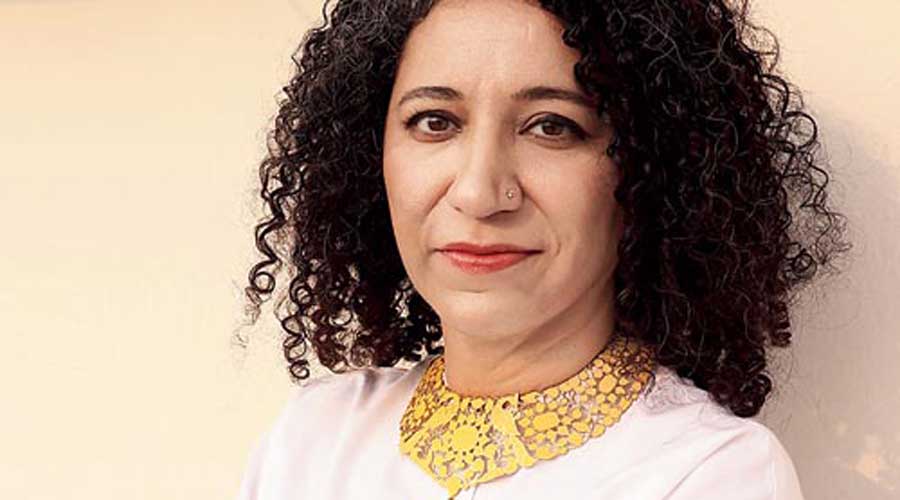
Freedom to me is to not be bound by anything. Not the nine-to-five of a job, the societal norms of marriage and motherhood, the rules you learn at design school, the aggressively ambitious and risky paths that businesses are supposed to follow. Freedom is fearlessly following my heart and gut and doing what feels right for me. This shows in the fact that even though my work uses traditional craft, it doesn’t always follow traditional rules of jewellery. It also doesn’t follow trends or fashion seasons or cycles. It only caters to the emotional requirement of the wearer, and is valuable in terms of the meaning, memories and reminders it contains
— Eina Ahluwalia, conceptual jewellery designer
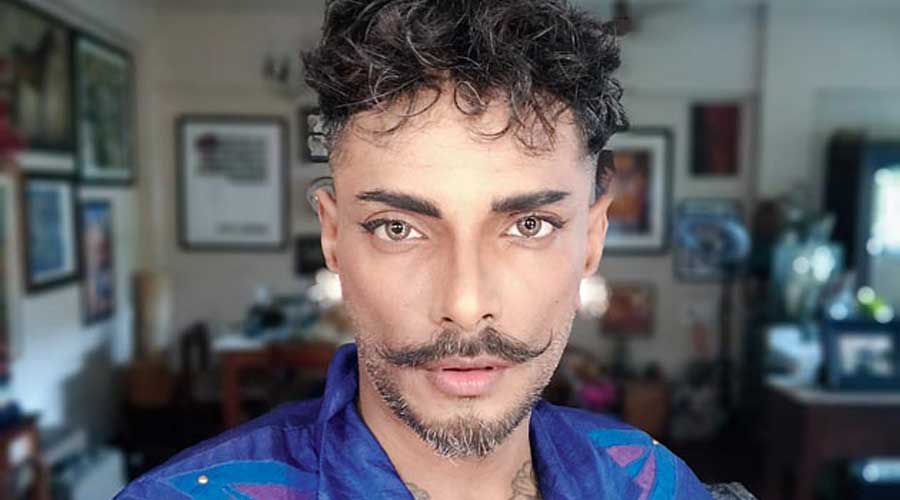
My concept of freedom is not only one where everybody receives equal freedom at all levels... so independence and not just in a equal rights and opportunities or lesser discrimination sort of way, but also from a creative perspective and artistic perspective. A more existential, human space where one has the freedom to explore and enjoy everything related to one’s own senses... what you hear, what you think, what you smell, see and how you are conditioned. Freedom is when you have complete independence and autonomy of your own choices and where it’s good, safe and encouraged to go against the grain and create a new expression, a new language and the freedom to access not just knowledge and information but also imagination.
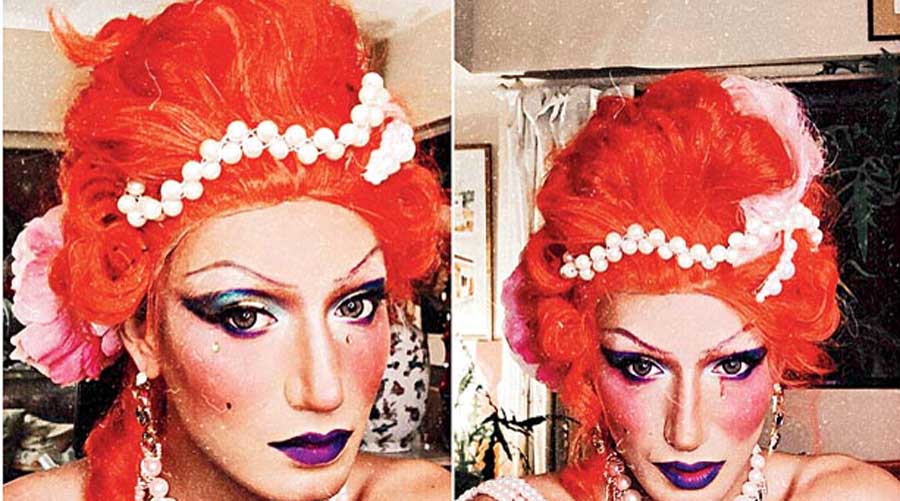
This picture that you see was not a paid job. My very dear friend Suruj Rajkhowa from Assam who also goes by his drag persona, @glorious_luna, was visiting me and I had a bit of an inspiration.... It speaks very well for a drag queen because of what drag as a subculture stands for even. Just the sense to access your imagination, craft and artistic flair and present it to the world in an unexpected way and when it is collaborative with other artists, it’s always nicer
— Elton J Fernandez, make-up pro and LGBTQ+ advocate
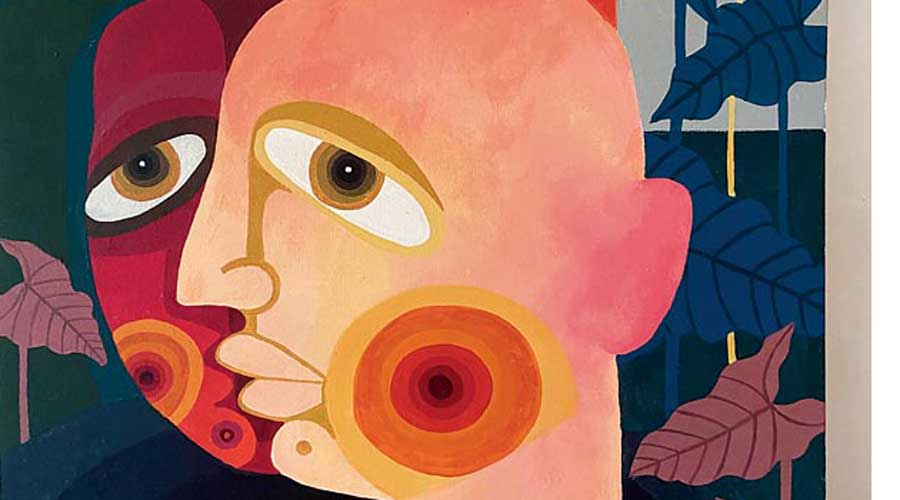
“The faces that you see in my work are actually my expression that depicts your ego, accepting your alter ego. I personally have battled this and I see a lot of people around me battling the same. The fight to accept one’s own self is the greatest battle,” says Ayushman.
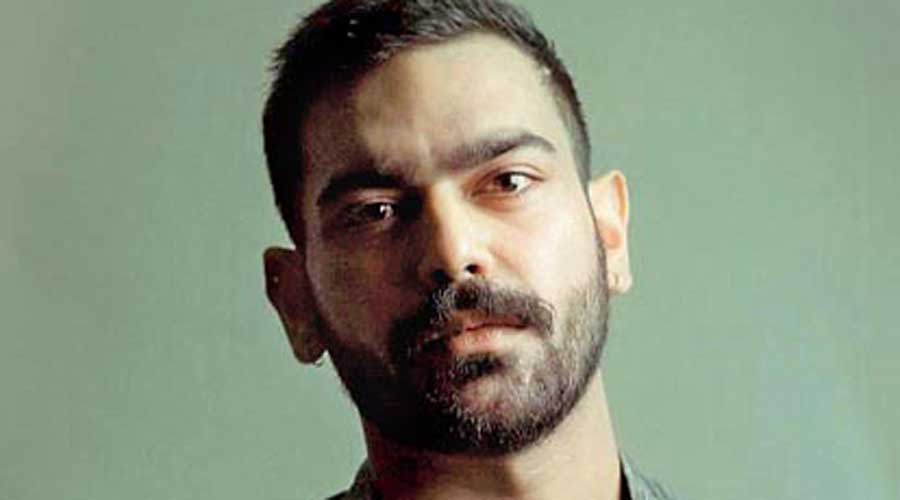
Ayushman
The core ideas of my work as an artist and a fashion designer are the ideas of liberation and freedom. The liberation of love, the ideas of acceptance and the freedom to be who you really are. It is very important to make peace with your own self and to set yourself free. For me, freedom means to set yourself free first. And that is what I represent as a painter and a designer and that is what I think is most important. Freeing your own self, your own identity, your own spirit from the shackles of whatever you have been taught and told to do and you do not belong there. So, it is high time we accept our own selves, embrace it and free our spirits — Ayushman Mitra, artist/designer
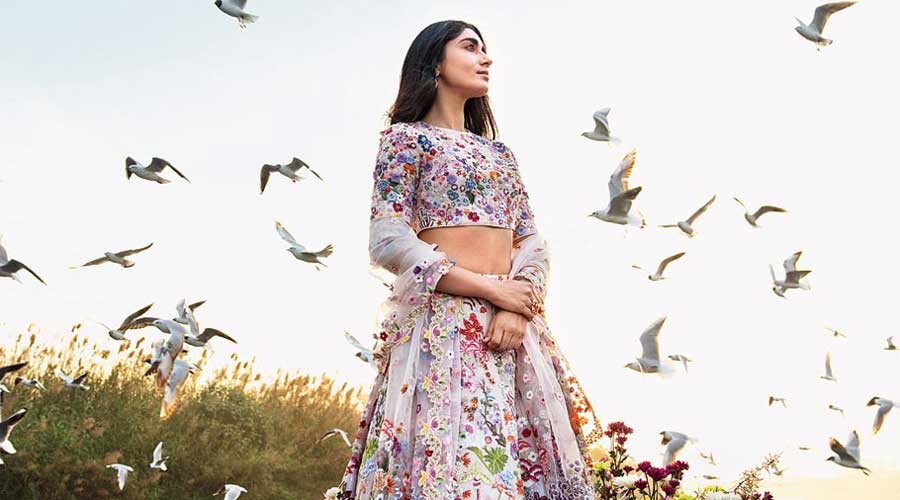
Rahul Mishra’s Festive Couture 2021. Picture: Vansh Virmani; Styling: Priyanka Yadav; hair and make-up: Leeview Biswas; model: Jasmeet Devgan
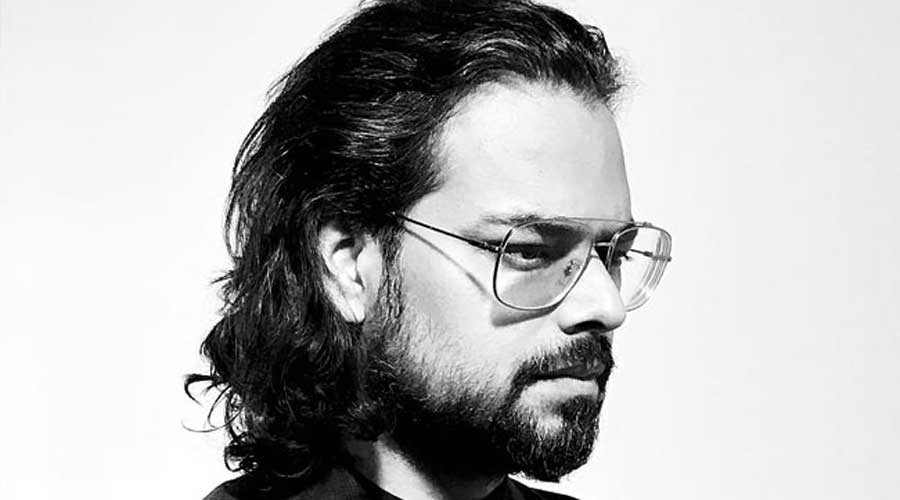
For me, freedom is Swaraj. Whatever we do stems from the beautiful Gandhian talisman that before you contemplate or take any action, think of the weakest and poorest individual you have come across and how it can help or harm him... how this step can gain him his own Swaraj, his own control over his own life. So for me when as a garment designer I have to make clothes, my idea or purpose behind the clothing is whatever I do is Swaraj. Any inspiration which comes to mind say Santorini or mushrooms.... when we do hand embroidery, it creates 2,000 human hours of work....
So, the purpose is to create more participation from people, from workers, from the people who do not have work... so in the process of making the beautiful outfit, they can gain their own Swaraj. For us, wherever we use machines, it doesn’t replace human hands. It aids human hands. I say with a lot of pride that the employment we generate, 90 per cent is human hands.... It allows my workers and karigars to get their own Swaraj. Even in consumption, we should think about this— Rahul Mishra, couturier
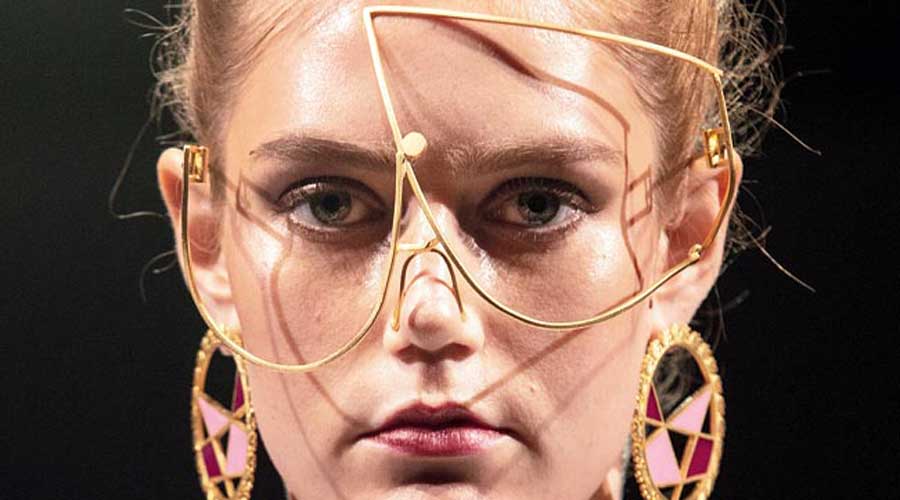
Adhi Naari Eyewear for Helsinki Fashion Week
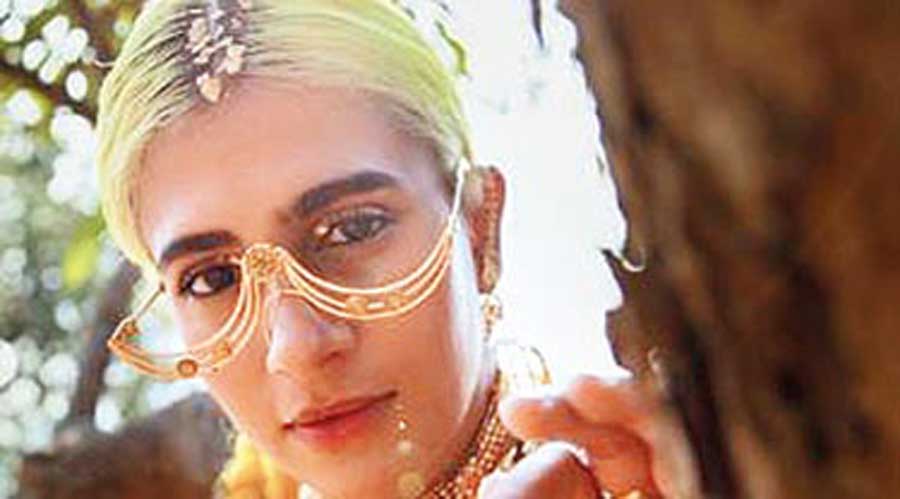
Madame Gandhi in Rehwa eyewear
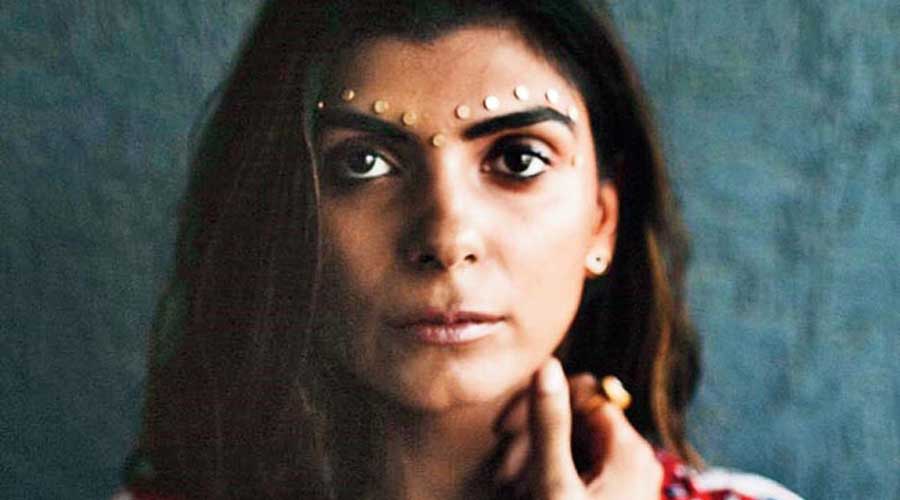
Total freedom comes with unconditional acceptance, it’s when we accept are ourselves for who we are, which therefore reflects in the way we live our lives, do things and most importantly create. If we free ourselves from our thoughts and insecurities can we create with no inhibitions.
This thought process has enabled me to work with unique concepts to create a value proposition that is a perfect balance between form and function
—Roma Narsinghani, jewellery designer
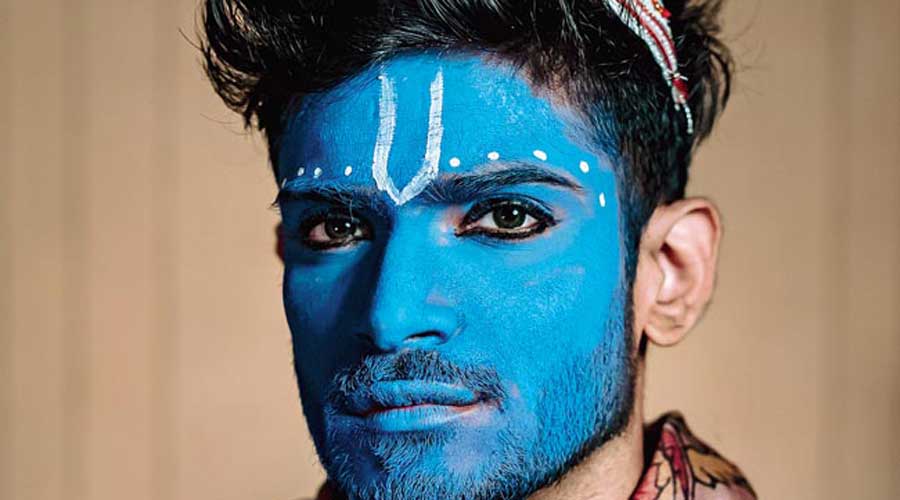
“This picture shows the different faces of the same person and the struggle one has to constantly live with to find a safe space where they can be who they are without any fear whatsoever. The drape here is a hand-painted kalamkari sari,” says Ayush.
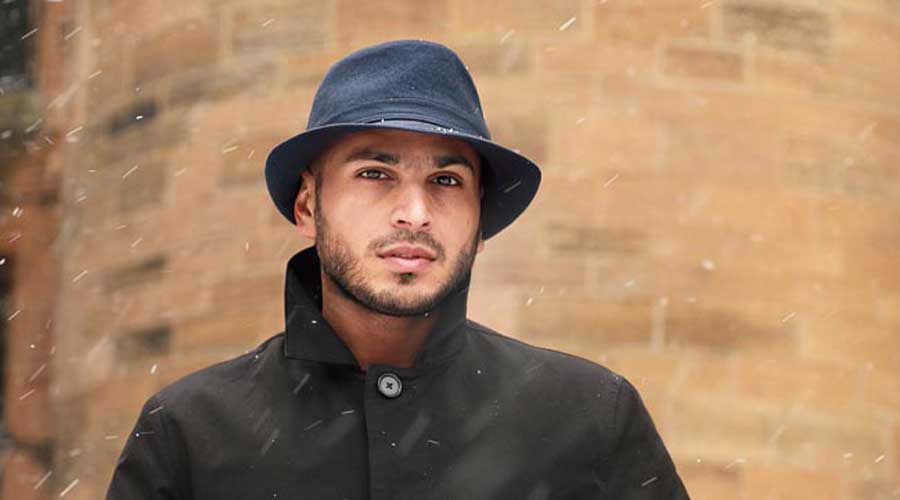
Freedom to me is being able to live my truth, my right to dissent, my right to not being judged for my lifestyle choices, my right to be able to fearlessly share my opinions and thoughts without any censorship and, most importantly, my right to be happy in a way that I define happiness. I would like to say though as long as I live in a way that does not inflict harm on others, no one should try to stop me. What I eat, what I wear, who I live with, who I make love to, how I pray and whatever I choose to be should not be up for discussion or consultation.
I have always been very vocal about how one should be allowed to truly be themselves without the fear of being ostracised. I have challenged stereotypes, baseless traditions and tried to be a voice of reason through my work. I have used design as a medium to engage with my audience with the aim of making them question their beliefs and the way of life around them.
I feel freedom in its truest sense cannot be defined to a limited amount of variables. Freedom with conditions is just as useless as a knitted condom! —
Ayush Kejriwal, fashion designer

